Challenged with disaster response and terrorism scenarios, 28 senior leaders from 24 locations collaborated to develop problem-solving strategies as part of the May 9 to 13 Transnational Security Cooperation course (16-1) at the Daniel K. Inouye Asia-Pacific Center for Security Studies.
Crisis response scenarios are a key part of the week-long TSC, an intensive executive education program for current leaders with significant national, regional or international responsibility. TSC is the Center’s most senior-level course and enhances Fellows’ understanding of security issues that often cross national boundaries, are highly complex, and require multi-national responses.
The course began with topical discussions on strategic problem-solving tools focused heavily on assessment and planning. With these tools in hand, Fellows were split into two groups and launched into three-stage crisis scenarios, one centered on a bio-hazard/mass migration issue and the other on terrorist attacks within a major Asian city. They first evaluated underlying factors driving each event — such as economic, ethnic, or cultural issues — and then identified resolutions via multilateral cooperation.
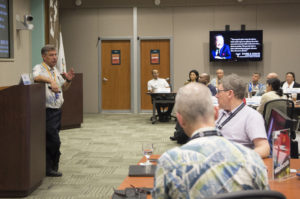
Lt. Gen. (Ret) Dan Leaf, director of the Daniel K. Inouye Asia-Pacific Center for Security Studies, provides opening remarks to 28 Fellows attending the May 9 to 13 Transnational Security Cooperation course (TSC 16-1). The course is designed to enhance the collaborative problem-solving skills of regional senior leaders. Go to DKI APCSS Facebook to view more TSC photos.
“They have to look at opportunities to engage prior to reaching a heightened point of conflict…that’s one of the key objectives of our security education program,” explained course manager Dr. Saira Yamin. “Even when forced to react to a situation already in crisis, as these Fellows must, they’re thinking about short-term and long-term measures to deal with it — while short-term actions will address management, containment and resolution, long-term actions can set up mechanisms that prevent future conflict or a repeat of a non-violent crisis.”
Fellows documented their work accomplished in three sessions and at the end of each session briefed a panel of DKI APCSS faculty members and leaders on their progress and eventual proposals.
New Zealand Chief of Navy Rear Adm. John Martin said the exercise reinforced his previous experience in crisis response, but also gave him an appreciation of what smaller nations and organizations “bring to the solution space.” A veteran of joint planning, which involves coordination only among a single nation’s security organizations, Martin related, “To actually create in a combined (multi-national) environment from the beginning was very rich.”
In addition to exercise scenarios, TSC Fellows also took part in multiple topical discussions to include “Cybersecurity and the Asia-Pacific,” led by Dr. Lora Saalman, “Maritime Security,” with U.S. Navy Cmdr. Jonathan Odom, and “Demographic Trends in the Asia-Pacific Region,” led by Dr. Al Oehlers.
Bat-Ulzii Tumurbaatar, a senior policy official with Mongolia’s Ministry of Justice, said prior to TSC she didn’t believe security was tied to her job of making law. She said TSC lectures changed her view, demonstrating how all elements of governance are linked to security. “Now, I will be looking at (things) differently. When I write down a legal opinion, I will keep in mind what will be the related security issue.” The Mongolian Fellow related she also appreciated the opportunity to learn from the experiences of her peers.
Joining Tumurbaatar and Martin in TSC 16-1 were Fellows from Australia, Bhutan, Cambodia, Canada, Fiji, India, Indonesia, Japan, Malaysia, Mongolia, Myanmar, Nepal, and New Zealand. Fellows also came from Pakistan, Papua New Guinea, Philippines, Republic of Korea and Singapore, Sri Lanka, Taiwan, Thailand, Timor-Leste, Tonga and the United States.
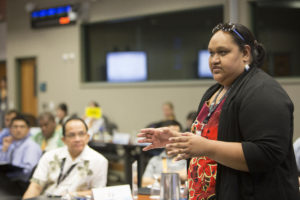
Telesia Kaitapu, with Tonga’s Ministry of Foreign Affairs, introduces herself to 27 senior leader peers at the onset of the Transnational Security Cooperation course (TSC 16-1) at the Daniel K. Inouye Asia-Pacific Center for Security Studies. Kaitapu joined TSC Fellows from 24 locations from throughout the Asia-Pacific region. Go to DKI APCSS Facebook to view more TSC photos
TSC is one of six formal courses at DKI APCSS. The center is a Department of Defense institute that addresses regional and global security issues. Military and civilian representatives, most from the United States and Asia-Pacific nations, participate in a comprehensive program of executive education, professional exchanges and outreach events, both in Hawaii and throughout the Asia-Pacific Region.
The Center supports U.S. Pacific Command by developing and sustaining relationships among security practitioners and national security establishments throughout the region. DKI APCSS’ mission is to build capacities and communities of interest by educating, connecting and empowering security practitioners to advance Asia-Pacific security. It is one of the Department of Defense’s five regional security studies centers.
Since opening in 1995, more than 10,000 alumni representing over 122 countries and territories have attended DKI APCSS courses and workshops.
To view additional TSC photos, go to DKI APCSS Facebook.
-END-


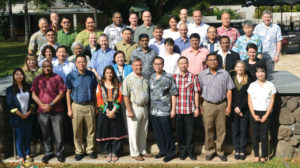
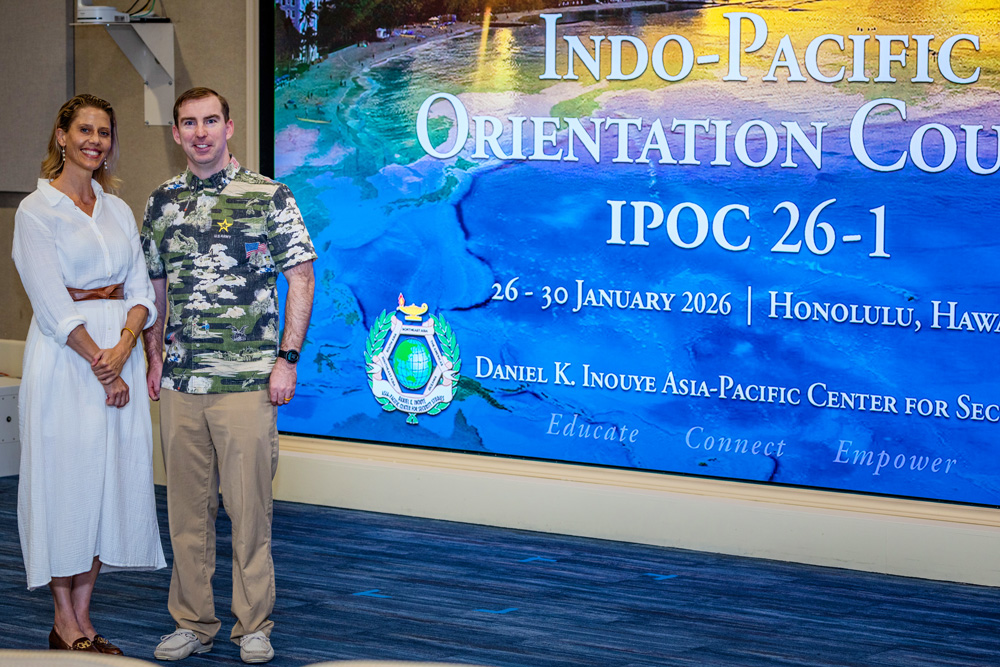
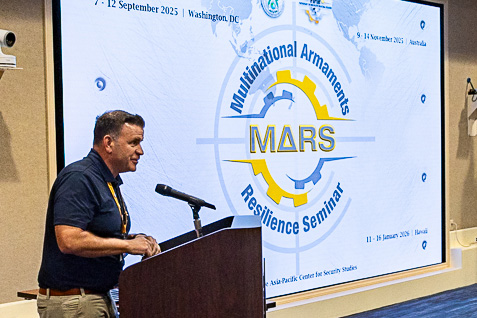
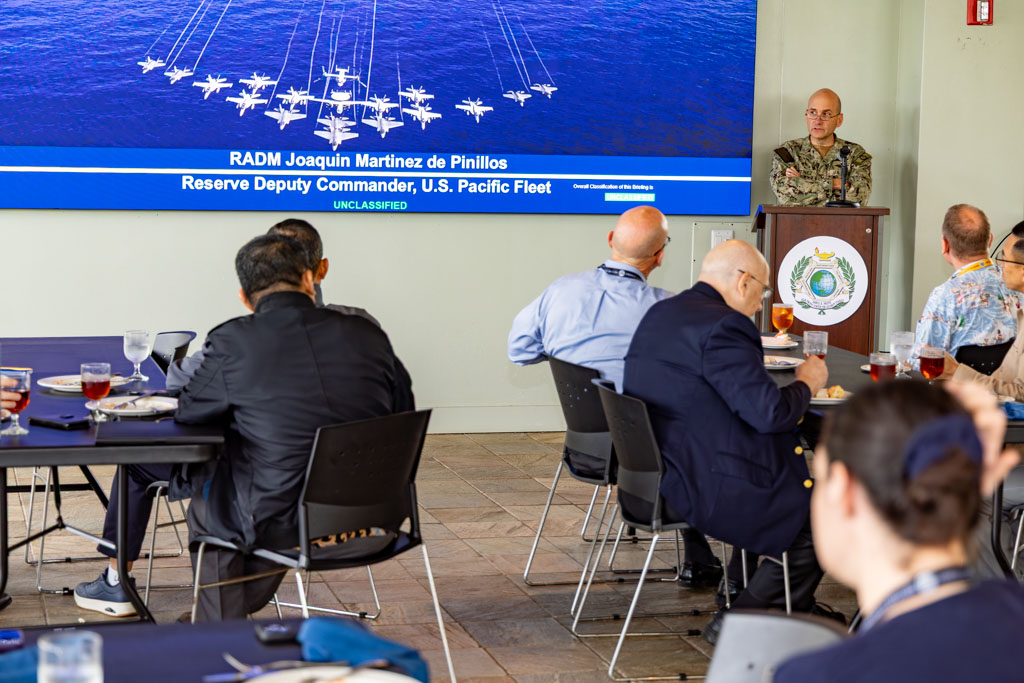




Leave A Comment